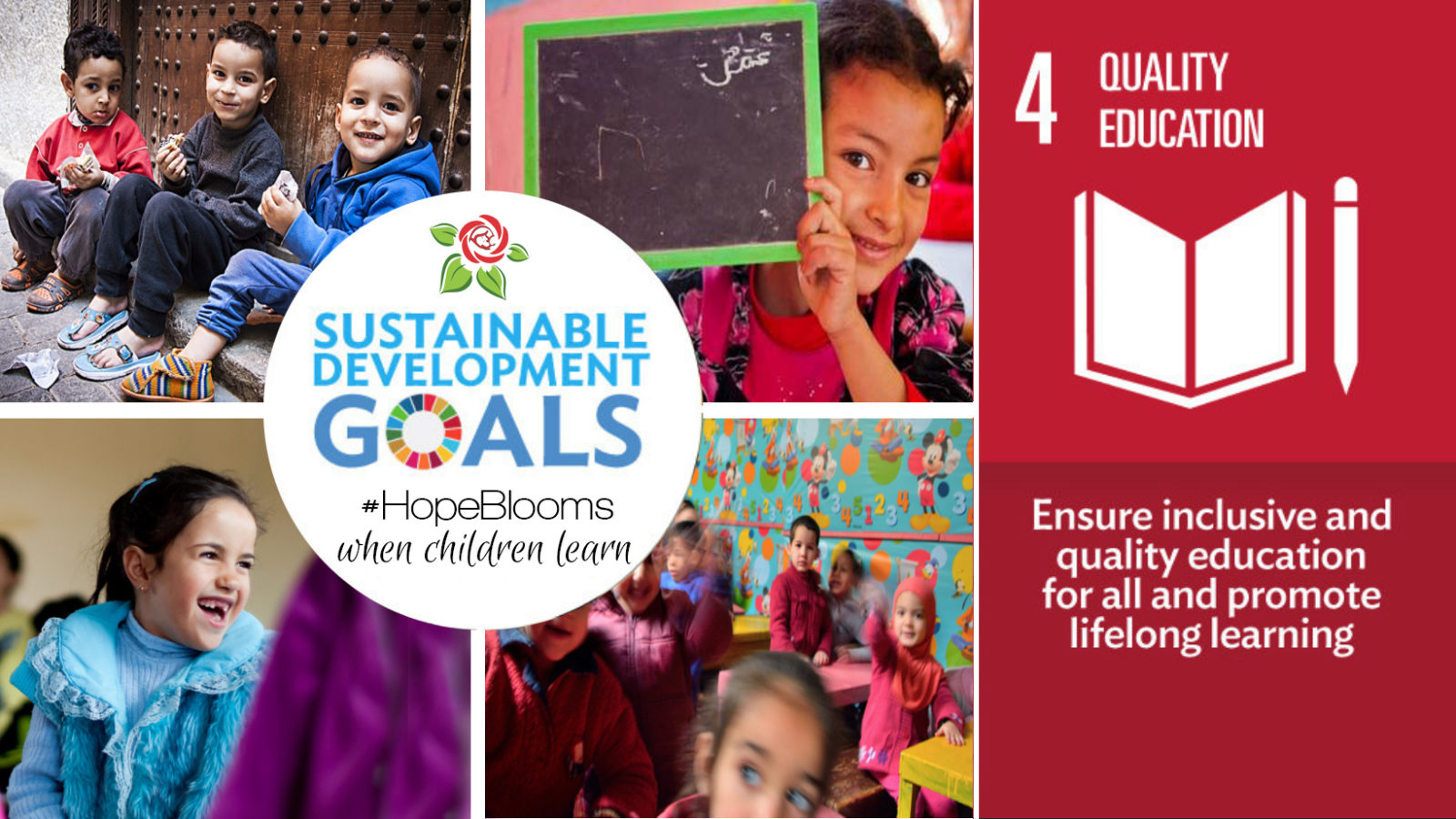Imagine starting school as a young child living in an orphanage. Abandoned at birth, you never had a toy of your own, a meal that filled your belly, held a pencil, or heard the words “I love you.” At six years old, you leave the confined, isolated, dark rooms of your orphanage. You now sit under the bright lights of a full classroom, as strange adults command, “Focus! Write! Sit Down!” You attempt to absorb the fascinating, challenging, overwhelming world around you. Could you succeed?
Unfortunately, many Moroccan orphans are not succeeding in the public school system. Early barriers to quality education include limited social interactions, learning experiences and resources. BLOOM is committed to improving educational outcomes and economic prospects for orphans through investments in early childhood.
Early Childhood Development programs reduce inequality and break the cycle of poverty. ECD programs target cognitive, emotional, and resource limitations faced by disadvantaged children. The United Nations has developed 17 Sustainable Development Goals to transform the world by 2030, and its 4th goal of “Quality Education” targets early childhood as critical to success. The SDGs challenge us to “ensure that all girls and boys have access to quality early childhood development, care and pre-primary education so that they are ready for primary education.”
Orphan children are at a disadvantage due to the absence of a loving parent that provides stimulation and nurturing. If stimulation to develop mental, emotional, and physical health is absent during the critical window of 0 to 5 years, it cannot be easily recovered. Studies show that children whose parents play, talk and read to them do better in school. Orphans in Morocco are missing the love and support of a parent, but BLOOM is committed to providing them with more resources and care in these critical years.
How do BLOOM’s projects support Goal 4of Quality Education?
SDG Goal 4.2 challenges us to “improve the proportion of children under 5 years of age who are developmentally on track in health, learning and psychosocial well-being.” BLOOM’s Magical PlayGardens project provides young orphans with a dedicated space to play, learn and grow. The PlayGardens are healing gardens and play spaces in Moroccan orphanages that are rich with sensory experiences, art supplies, educational toys and opportunities to learn-through-play. In these spaces, orphans are encouraged to be curious, create, collaborate and explore; they are free to run, tumble, climb, squeal, be noisy and messy.
BLOOM’s programs help children develop cognitive skills. Through play-based opportunities they develop knowledge in math, science and engineering.
BLOOM’s programs help children develop emotional skills. Through collaborative activities children learn to be self-reliant, self-regulate, lead and be a team player.
BLOOM’s programs help children read and write. Exposure to letters, sounds, and story telling build early literacy and language skills.
BLOOM’s programs help children develop physical strength and fine/gross motor skills. The motor skill strengthening prepares them for school and integrates muscles with nerve and brain function.
Through investments in early childhood, BLOOM allows orphans to attain the school readiness skills required for a formal educational environment. Our programs target the cognitive, emotional, and resource limitations faced when growing up in an orphanage setting.
As Morocco works to achieve the SDG Goal of Quality Education, BLOOM’s programs reduce the disparity felt by its vulnerable orphan population.

